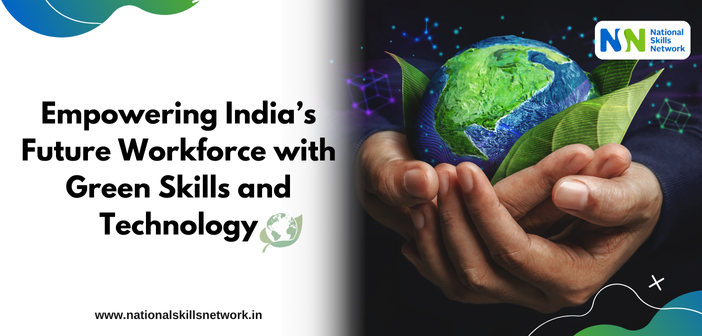In the face of escalating climate challenges and growing global demand for sustainability, green skills and green technology have emerged as a critical requirement for the future workforce. According to a 2023 BCG report, the global skills gap in the green economy is projected to reach 7 million by 2030, particularly in sectors like solar, wind, and biofuels. Closer to home, India’s renewable energy (RE) sector is estimated to create 1.7 million jobs, yet faces a skill gap of 1.2 million (TeamLease Degree Apprenticeship data). These skills encompass knowledge, abilities, values, and attitudes essential for reducing environmental impact, fostering resource efficiency, and driving sustainable development.
For industries and institutions, investing in green skills is no longer optional but a necessity to stay competitive in a rapidly transforming global economy.
Understanding green skills
Simply put, green skills refer to the competencies required to develop and support a sustainable, resource-efficient society. These include:
- Environmental literacy: Understanding climate change, biodiversity, and resource conservation.
- Sustainable innovation: Creating products, services, and processes that minimize environmental harm.
- Circular economy thinking: Designing solutions to reduce waste and encourage recycling and reuse.
The transition to a low-carbon, resource-efficient economy requires systemic changes that will impact production processes, business models, and workforce dynamics. This shift will not only introduce new roles but also redefine the skills needed for existing occupations, emphasizing the importance of integrating green skills into education and workforce development programs.
Green technology and its industry impact
Green technologies such as renewable energy systems, EV infrastructure, and sustainable production are transforming industries worldwide. They are driving efficiency, reducing carbon footprints, and fostering innovation. Key examples include:
- Renewable energy systems: Solar and wind energy solutions are becoming cornerstones of sustainable energy infrastructure.
- Electric vehicle (EV) infrastructure: Charging stations, battery technologies, and EV manufacturing are revolutionizing transportation.
- Sustainable production processes: Waste-to-energy systems and eco-friendly manufacturing techniques are redefining industry standards.
These advancements create immense opportunities for a skilled workforce, enabling businesses to align with Sustainable Development Goals (SDGs).

Future workforce and green skills
India’s green transition presents a dual challenge: bridging the skills gap while capitalizing on opportunities. According to a 2023 BCG report, the global skills gap in the green economy is projected to reach 7 million by 2030, particularly in critical sectors like solar, wind, and biofuels. Closer to home, India’s renewable energy (RE) sector is estimated to create 1.7 million jobs, yet faces a skill gap of 1.2 million (TeamLease Degree Apprenticeship data).
By equipping the workforce with green skills, India can:
- Address skill shortages in key sectors.
- Enhance employability and global competitiveness.
- Achieve national sustainability goals like Net Zero 2070.
Government initiatives and training programs
India has taken proactive steps to foster green skills and drive the transition to a sustainable economy. Notable initiatives include:
- Skill Council for Green Jobs (SCGJ): Offering specialized training programs like Solar PV Installer (Civil), Wind Power Plant Technician, Bio-Energy Technician, Energy Efficiency Auditor and more. If you wish to explore the training programmes please visit Skill Council for Green Jobs (SCGJ)’s offical website.
- National Green Hydrogen Mission: Promoting hydrogen as a clean energy alternative and creating new opportunities in hydrogen production and technology.
- Faster Adoption and Manufacturing of Hybrid and Electric Vehicles (FAME): Encouraging the adoption of EVs through incentives and infrastructure development.
Mobilizing Businesses and Institutions for Green Workforce Development
To bridge the skills gap and secure a sustainable future, businesses and educational institutions must collaborate to:
- Integrate green skills into curricula: Education and skill training Institutions should incorporate hands-on training in green technologies like solar and wind energy, EV systems, and resource-efficient production. Know more about the top in-demand skills for a career in green and sustainable industries.
- Invest in green infrastructure: Industries should establish partnerships with training bodies like SCGJ to develop labs and learning centers.
- Promote industry-academia collaboration: Foster partnerships to design programs that align with market needs.
Climate change demands urgent action, and green skills are the foundation for a sustainable response. By equipping the next generation with these skills, India can not only address its workforce challenges but also emerge as a global leader in sustainability. As businesses and education and skill training institutions, the question is: Are you ready to invest in the green transformation and empower the workforce of tomorrow?
Subscribe to our YouTube channel for more updates:
Subscribe on YouTube


